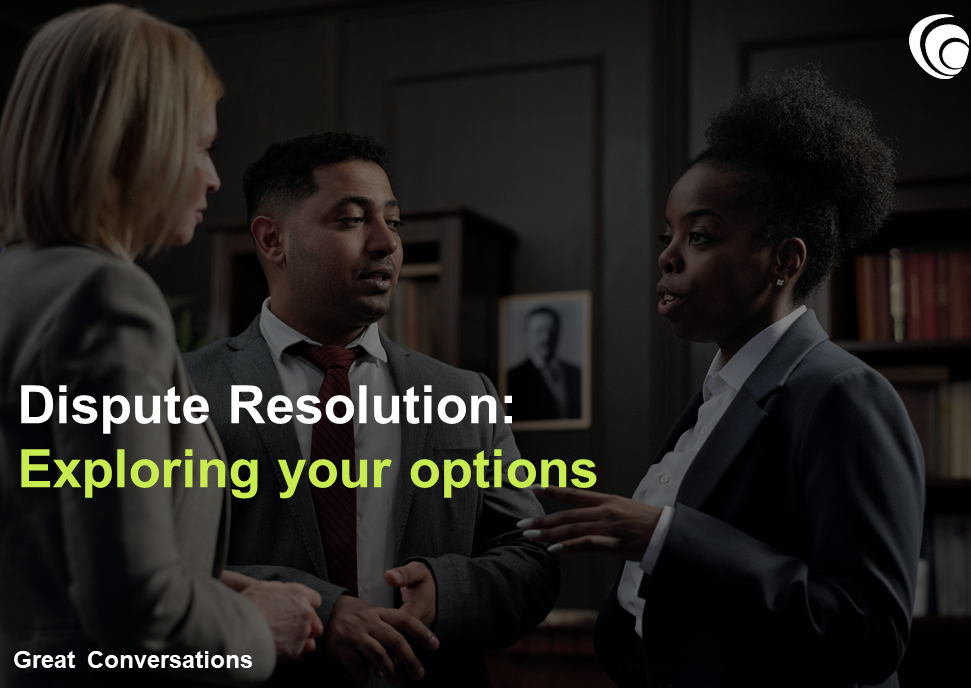
Dispute Resolution – Exploring Your Options
Conflict is an inevitable part of life, at some point you have and will find yourself in a situation where you may not necessarily agree with something or someone. Ideally, sitting down and having a constructive conversation should solve the issue and everyone can move on, but it is not always that simple and in some cases outside intervention is warranted.
Getting a neutral third party to step in helps ensure that both sides are heard and the best possible outcome, that is fair to all parties, is arrived at. If you are unable to come to an agreeable solution in a conflict and decide to involve external legal assistance, it is important to understand what type of dispute resolution you require for your specific case. There are a number of methods that can be used for conflict resolution and in this article we will explore the three most common options – mediation, arbitration and litigation.
Mediation is the least “invasive” dispute resolution approach, which allows both parties to maintain a fair degree of control over the conversation. Under this option a neutral third party, such as a mediator from a law firm like Mundia & Mudhara (a Baker Tilly network member), facilitates the exchange between yourself and the other party until a consensus is reached. The mediator does not impose a solution but tries to find underlying interests and commonalities between the parties that can help you arrive at an amicable agreement.
Arbitration gives the neutral third party a bit more power over the resolution, with the arbitrator giving the final binding decision on the matter. This does not mean you have no say in the process, however, there are still certain aspects that you can negotiate over with regards to the proceedings, such as which evidence will be permitted for use. The arbitrator’s responsibility is to listen to all sides out without bias before handing down a decision.
The third most common dispute resolution option that is used is litigation. Under litigation, a legal claim is presented in court and presided over by a judge and in some cases a jury as well. You may want to exhaust all other options before elevating a dispute to this level however, due to the time and financial cost it entails and the unwanted publicity and scrutiny it could expose you to; but in some cases, particularly when the above alternative dispute resolution methods fail, it may be necessary.
The best option for you will depend on a number of factors; the dispute resolution process is definitely not a one size fits all. If you are considering calling in external assistance, consult a trusted legal professional who will walk you through your options and advise on the best course of action. Mundia & Mudhara knows that each case is different and while the resolution processes may fall under generic labels, the service we provide is anything but generic. Our primary role first and foremost is to understand, and with that at the foundation of all our services we are able to provide legal support that is fair and that is customised and adapted to your needs.







